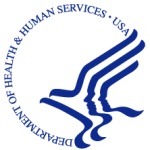- Industry: Government
- Number of terms: 33950
- Number of blossaries: 0
- Company Profile:
United States Department of Health and Human Services, Radiation Emergency Medical Management
A cell that varies in shape depending on whether the tissue is being stretched. Transitional cells may be stretched without breaking apart. They line hollow organs such as the bladder.
Industry:Health care
An herb native to islands in the South Pacific. Substances taken from the root have been used in some cultures to relieve stress, anxiety, tension, sleeplessness, and problems of menopause. Yangona may increase the effect of alcohol and of certain drugs used to treat anxiety and depression. The U.S. Food and Drug Administration advises users that yangona may cause severe liver damage. The scientific name is Piper methysticum. Also called intoxicating pepper, kava kava, rauschpfeffer, and tonga.
Industry:Health care
A condition in which Candida albicans, a type of yeast, grows out of control in moist skin areas of the body. It is usually a result of a weakened immune system, but can be a side effect of chemotherapy or treatment with antibiotics. Candidiasis usually affects the mouth (oral candidiasis); however, rarely, it spreads throughout the entire body. Also called candidosis and thrush.
Industry:Health care
The disappearance of all signs of cancer in response to treatment. This does not always mean the cancer has been cured. Also called complete response.
Industry:Health care
Used in photodynamic therapy, a drug that is absorbed by tumor cells; when exposed to light, it becomes active and kills the cancer cells.
Industry:Health care
A condition in which immature red blood cells (erythroid cells) in the bone marrow are abnormal in size, shape, organization, and/or number. Erythrodysplasia may be caused by vitamin deficiency or chemotherapy, or it may be a sign of refractory anemia, which is a myelodysplastic syndrome. Also called erythroid dysplasia.
Industry:Health care
Treatment that adds, blocks, or removes hormones. For certain conditions (such as diabetes or menopause), hormones are given to adjust low hormone levels. To slow or stop the growth of certain cancers (such as prostate and breast cancer), synthetic hormones or other drugs may be given to block the body’s natural hormones. Sometimes surgery is needed to remove the gland that makes a certain hormone. Also called endocrine therapy, hormonal therapy, and hormone therapy.
Industry:Health care
Treatment in which anticancer drugs are put directly into the abdominal cavity through a thin tube.
Industry:Health care
A type of lymphoma that tends to grow and spread slowly, and has few symptoms. Also called indolent lymphoma.
Industry:Health care
